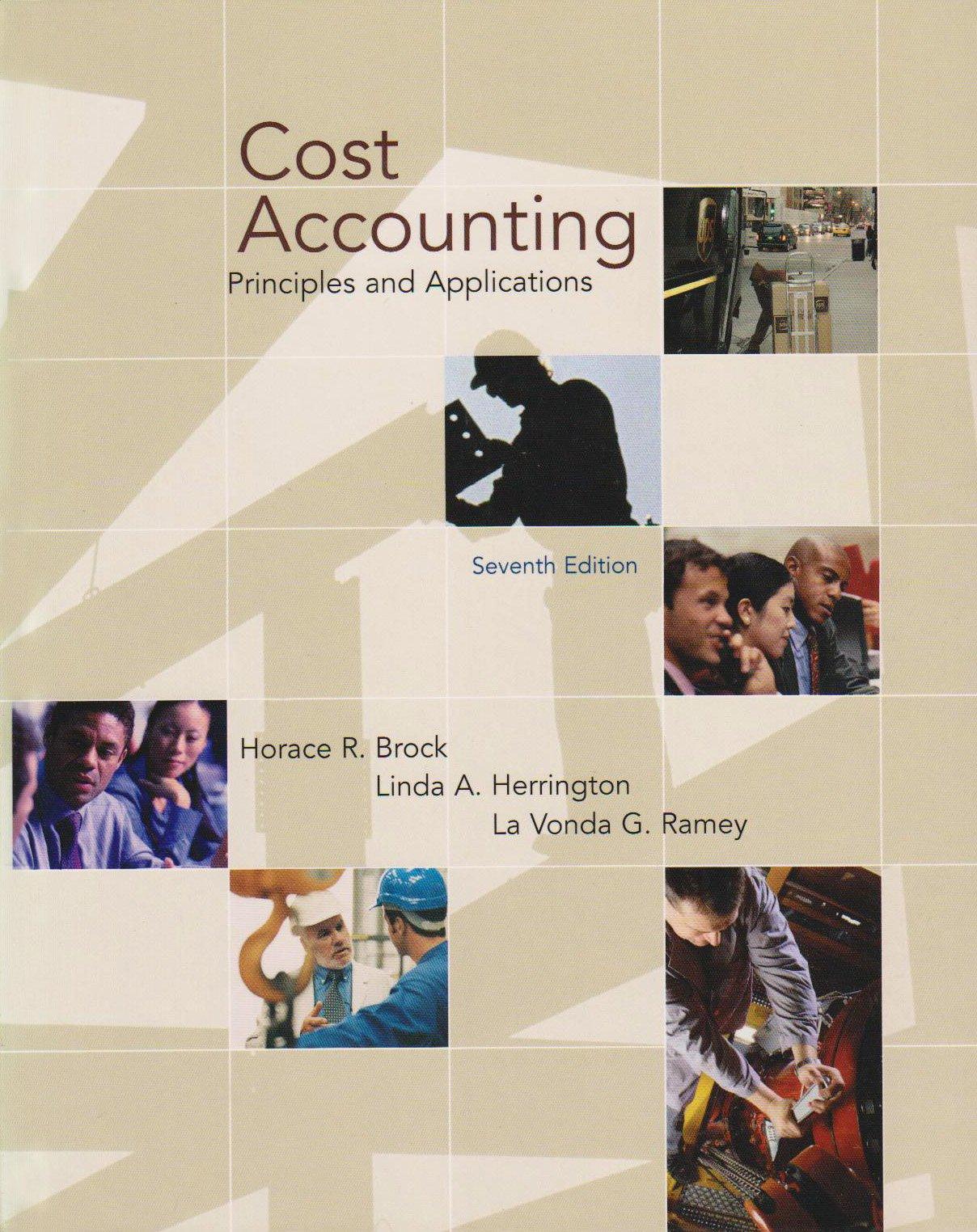Question
Ms. Anna started her business (Anna Car Repairing Shop) on January 1, 2018. During the first month of its operations, the business engaged in the
- Ms. Anna started her business ("Anna Car Repairing Shop") on January 1, 2018. During the first month of its operations, the business engaged in the following transactions:
Date Transactions
Jan 1 Anna invested cash $100,000 as initial capital to start the business.
Jan 2 An amount of $36,000 was paid as advance rent for three months.
Jan 3 Paid $60,000 cash on the purchase of equipment costing $80,000. The remaining amount was recognized as note payable.
Jan 4 Purchased office supplies costing $17,600 on account.
Jan 13 Provided services to its customers and received $28,500 in cash.
Jan 13 Paid the accounts payable on the office supplies purchased on January 4.
Jan 14 Paid wages to its employees for the month of January, aggregating $19,100.
Jan 18 Provided $54,100 worth of services to its customers. They paid $32,900 and promised to pay the remaining amount in the next month.
Jan 23 Received $15,300 from customers for the services provided on January 18.
Jan 25 Received $4,000 as an advance payment from customers.
Jan 26 Purchased office supplies costing $5,200 on account.
Jan 28 Paid water bill of $19,000 for January
Jan 31 Paid $5,000 advertising expense.
Jan 31 Received electricity bill of $2,470 for January.
Jan 31 Received telephone bill of $1,494 for January.
Jan 31 Miscellaneous expenses paid during the month totaled $3,470.
Instructions:
- Journalize the transactions with explanations (Ignore the reference numbers). (16)
- Post the transactions in the ledger account. (16)
- Prepare Trial Balance for Jan 31, 2018. (10)
- Prepare Income Statement and a classified Balance for Jan 31, 2018 based on the information available in the trial balance. (10)
2.Write short notes on the following accounting principles with proper example: (18)
a) Cost Principle.
b) Economic Entity Assumption
c)Monetary Unit Assumption
d)Going Concern
e)Periodicity
f)Revenue Recognition Principle
g)Matching Concept
h)Accrual Basis of Accounting
i)Dual Aspect of Accounting
3.Baker Corporation provided the following Statements for 2014-15 -
Balance Sheet 2015 2014
Assets $ $
Cash 40,000 70,000
Accounts Receivable 320,000 350,000
Inventory 460,000 320,000
Total Current Asset 820,000 740,000
Gross Fixed Assets 560,000 520,000
Accumulated Depreciation 180,000 150,000
Net Fixed Asset 380,000 370,000
Total Asset 1,200,000 1,110,000
Liabilities & Stockholders' Equity
Current Liabilities
Accounts Payable 390,000 320,000
Notes Payable 110,000 90,000
Accrued Expense 20,000 20,000
Total Current Liabilities 520,000 430,000
Long Term Debt 320,000 350,000
Total Liabilities 840,000 780,000
Stockholders' Equity
Common Stock at par 100,000 100,000
Share Premium Reserve 150,000 150,000
Retained Earnings 110,000 80,000
Total Liabilities & Stockholders' Equity 1,200,000 1,110,000
Income Statement 2015
$
Sales 2,200,000
Cogs 1,420,000
Gross Profit 780,000
Operating Expenses 600,000
Operating Income (EBIT) 180,000
Interest 29,000
Earnings before Tax (EBIT) 151,000
Tax (30%) 45,000
Earnings after Tax (Net Income) 106,000
Additional Information:
- Purchased equipment paying $40,000 cash.
- Annual depreciation expense was $30,000.
- Paid cash dividend of $76,000.
- No sale of fixed asset.
Required
- Prepare Cash Flow Statement for the year 2015. (12)
- Calculate the following Ratios for the year 2015 and also indicate the
significance of each ratio - (18)
Current Ratio, Quick Ratio, Accounts Receivable Turnover, Profit Margin, Asset
Turnover, RoA, Return on Common Stockholders' Equity, Debt to Asset, Times
Interest Earned ratio.
Step by Step Solution
There are 3 Steps involved in it
Step: 1

Get Instant Access to Expert-Tailored Solutions
See step-by-step solutions with expert insights and AI powered tools for academic success
Step: 2

Step: 3

Ace Your Homework with AI
Get the answers you need in no time with our AI-driven, step-by-step assistance
Get Started


